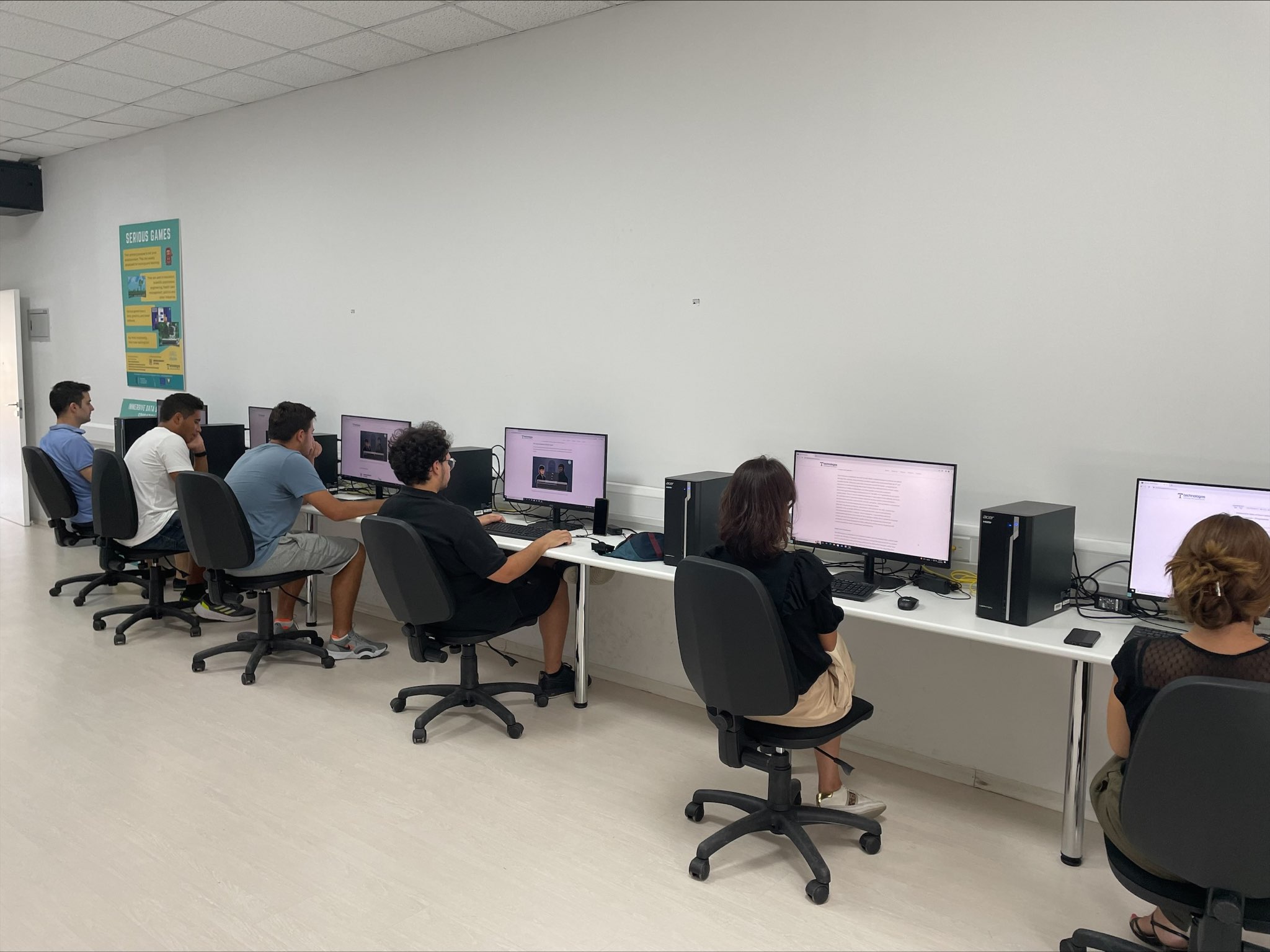Abacus Multiplier Event
The Abacus project organized a multiplier event on the 30th of August at AUCY (American University of Cyprus) to launch the Abacus platform and gather feedback from the participants. The event aimed to create awareness about the project, communicate its concept, goals, and results, and engage potential users in active
participation.
The multiplier event served as a platform to promote the Abacus project and its educational intervention. The content of the event included presentations, demonstrations, and interactive sessions to showcase the features and
benefits of the Abacus platform. The key messages were carefully formulated to ensure a clear understanding of the project's objectives and outcomes.
Communication materials, such as brochures and informational handouts, were prepared and distributed to the participants.
The target group for this activity comprised adults from diverse backgrounds, irrespective of ethnicity or gender.
The Abacus project adhered to strict privacy policies to safeguard the participants' personal information during both the lab experiments and the pilot phase. Opt-in and opt-out mechanisms were implemented, allowing users to regulate their level of participation and the disclosure of personal data.
The multiplier event played a crucial role in achieving the project's objectives. By creating awareness among potential adopters and users, it paved the way for the widespread adoption of the Abacus platform. The feedback collected during the event helped shape the project's future activities and improvements. The active engagement of the participants helped in building a community of potential users who will benefit from the educational resources offered by Abacus.
The main expected result of the multiplier event was to maximize the project's innovation potential and attract a wide range of stakeholders. The event aimed to create awareness and validation of the project's results among the targeted audiences. The dissemination activities were collectively performed by all project partners, leveraging their respective profiles and expertise. Industrial partners focused on industry sectors, distributors, and client networks, while academic and research partners aimed to reach research institutes and universities across Europe.

